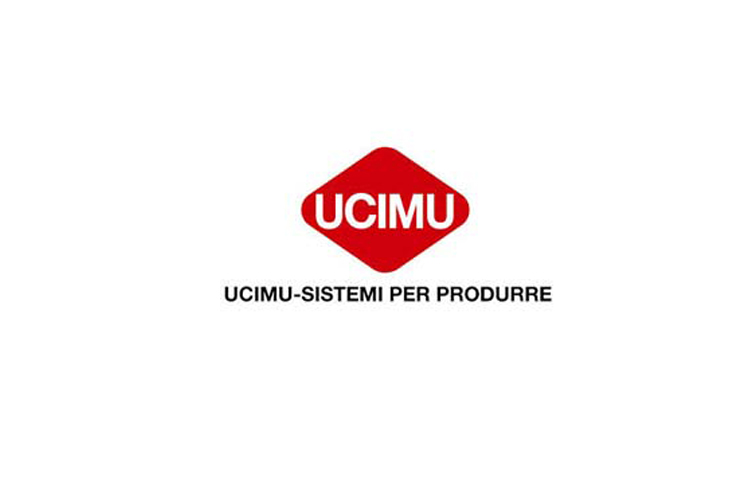Massimo Carboniero, President of UCIMU: “Great work was carried out by the Government authorities. With the Industry 4.0 Plan, they created a concrete programme of industrial policy, capable of ensuring the competitiveness improvement of the Italian manufacturing industry”.
Cinisello Balsamo, 21 December 2016. The Italian machine tool, robot and automation manufacturing industry closed the year 2016 registering a plus sign for a good part of the economic indicators and gets ready for a 2017 of further growth. This is the scenery in short illustrated by President Massimo Carboniero this morning, on the occasion of the year-end press conference of UCIMU-SISTEMI PER PRODURRE.
As evidenced by the preliminary year’s data processed by the Studies Dept. & Business Culture of UCIMU, in 2016 production increased to 5,480 million euro, recording a 5% upturn versus the previous year.
A definitely positive trend was reported with regard to the deliveries by the Italian manufacturers in the domestic market, grown to 2,205 million euro, i.e. 20.5% more compared with the previous year. On the other hand, export decreased, marking a -3.3% and reaching only 3,275 million euro, due to the weakness experienced in some major destination markets of the Italian product offering.
Based on the ISTAT data processing by UCIMU, in the first nine months of the year (latest available survey), the main destination countries of the “Made in Italy” in the sector turned out to be: Germany 260 million (-1%), United States 247 million (-9.1%), China 222 million (-9.7%), France 158 million (+23.6%), Poland 90 million (+3.5%), Mexico 76 million (+37.1%), Spain 75 million (+8,5%); Turkey 64 million (-4.4%), United Kingdom 58 million (-33%), Russia 57 million (-60%).
Consumption showed a good trend thanks to a 10.1% increase, totalling 3,685 million euro. It is the third consecutive year of double-digit growth, as a testimony to the recovery of the Italian market, which has finally started again to invest in production technologies.
The year 2017 will also be positive for the Italian industry of the sector: according to the forecasts there will be a growth for all the main economic indicators.
Production will rise to 5,700 million euro (+4%), thus getting closer to the record-breaking value of 6 billion euro registered in 2008.
Exports, expected to grow by 1.7%, will attain 3,330 million euro. The positive trend of consumption will also go on: it should rise by 6.9 %, to 3,940 million euro, driving the deliveries of manufacturers, which should reach 2,370 million euro (+7.5%), as well as imports, expected to amount to 1,570 million (+6.1%).
Massimo Carboniero, President of UCIMU-SISTEMI PER PRODURRE, commented: “The year 2016 was positive for the Italian machine tool industry, which contributes to the national GDP for almost 8 billion euro considering, besides the production of machine tools, also the production of parts, tools and numerical controls not included in the total Italian machine tools”.
“Furthermore, with production and consumption on the rise, Italy confirms to be interesting in the international stage, not only for the expertise shown by the Italian industries of the sector, but also for its lively demand, which is again flourishing thanks to useful provisions, such as the New Sabatini Law and the Super-Depreciation”.
“Now, with the Industry 4.0 Plan, included in the already approved Budget Law 2017 – stated Massimo Carboniero – the Government gave the country a well-structured and comprehensive programme of industrial policy. Confirmation of the Super-Depreciation at 140%, introduction of the Hyper-Depreciation at 250%, re-financing of the New Sabatini Law, increase from 25% to 50% of tax deductions for R&D activity are the pillars on which the programme is founded”.
“With this plan, Italian enterprises can rely on a series of measures aimed at favouring the improvement of their competitiveness. These measures can further boost the consumption of machinery and innovative technologies for factory digitalisation”.
“In particular – went on Massimo Carboniero – with the re-confirmation of the Super-Depreciation at 140%, the companies using machinery and production systems may rely on an incentive to renew their total machinery and increase the number of machines installed in their industrial plants, which often turned out to be obsolete based on recent surveys. On the other hand, the Hyper-Depreciation at 250% is aimed to support the enterprises’ technological and digital transformation according to the “Industry 4.0” model. The provision is indeed intended to stimulate the introduction and spread of systems linked to one another within the same factory or between systems of a single factory and other external systems”.
“On the basis of these clear and evident differences, – added the President of UCIMU – the machine tool manufacturers will have to take active steps to understand and keep up with new and different customers’ requirements in the best way, while providing, if necessary, an upgrade of the supplied technologies, so that they can ensure interconnectivity”.
“This is a great challenge – concluded President Carboniero – but the Italian manufacturers will be able to take it on, also because a good part of machine tools are already set up to support digital systems”.


